My End of 2021 Awards
By danielkempster 5 Comments

We made it, folks. Another year is almost over, and with its dénouement comes an opportunity to reflect on the experiences of the past twelve months. Unfortunately (for myself, at least), 2021 has felt much like an extension of 2020. My job as a frontline worker delivering non-clinical services in the NHS has continued to be a challenge, demanding more of my time and energy than ever before as the Covid-19 pandemic raged on. I was passed over for promotion to a managerial position last month, something that has disappointed me pretty heavily given I've been working the same job for almost a decade at this point. In late February I found out that one of my colleagues, who'd been in remission from breast cancer for eighteen months, had been diagnosed with untreatable metastatic recurrence of the disease, with a prognosis of six to twelve months. She passed away at the start of June, just over three months later. My parents have had to say goodbye to both of their dogs this year - Alaskan malamute Kookie back in April, and malamute-cross-border collie Mya just a few weeks ago. It hasn't all been bad - in April I proposed to my girlfriend Alice, who thankfully said yes, and we're scheduled to get married next spring. However, it's going to be very hard to look back on 2021 as anything other than a downer of a year punctuated by some pretty major personal tragedies and low points.
As in other hard years, video games have proven to be a reliable source of comfort and solace over the last twelve months. Over the course of 2021 I saw credits roll on twenty-six games, a slight increase on last year's final total of twenty-three titles and comfortably within the bracket of twenty-five to thirty that I set as a target all the way back in January. It's been a year characterised by returning to a lot of old favourites that transported me back to happier, simpler times and managed to lift my spirits when I was at my lowest. That's not to say I haven't played anything new this year - fifteen of those twenty-six games were entirely new experiences, and some of those left enough of an impression to make their way into the ranks of my all-time favourites. What follows is a list of ten games that came to define this year for me, either through the quality of the experiences that they offered or through the life events that they have become inextricably linked with. As in previous years, this list consists of games I have played this year rather than games released this year, and is presented in alphabetical order, with no attempts made to rank the games in any kind of hierarchy.
When putting together this year's top ten, I found myself thinking a lot about the criteria that I use to determine what is and isn't eligible for a spot on the list. In the past, I've typically avoided giving honours to games that I've played before, instead choosing to focus on the novel experiences provided by games that I've never played before. This year, however, I began to ask myself whether that's the right approach to take. This is, after all, supposed to be a list reflecting the experiences that I've had with games over the last twelve months. If a game has left a notable impression on me in that timeframe, then doesn't it deserve to be featured in my end-of-year run-down, even if I've already played it once before? Ultimately this point is moot, since this is my list to curate and it's up to me to decide what criteria I use to do so. Nonetheless, I'd like to shout out a new notable mentions before progressing into the top ten proper.
- In January, I finally saw the credits roll on a playthrough of Fallout 4. It is by far the least enjoyable experience I've had with a Bethesda game to date, but I still feel it's worth acknowledging the time I spent with it in some capacity, especially given at one point I didn't think I would ever see the story through to one of its four possible conclusions.
- I completed a comprehensive playthrough of Final Fantasy VII in the spring of this year with a view to producing a new long-form analysis of it in the style of my old Enduring Final Fantasy VII blog series. While that project is yet to come to fruition, I feel I should acknowledge the absolute blast I had going back to what is almost certainly my favourite game of all time.
- Not long after finishing up Final Fantasy VII, I played through Crash Bandicoot 4: It's About Time. I found the core of the experience to be satisfying, but I don't think I will ever return to it in pursuit of 100+% completion. Not least because the recent revelations surrounding the work culture at Activision-Blizzard have led me to re-evaluate my relationship with their recent nostalgia-pandering PS1-era remakes.
- To mark Halloween, this year's spooky October game took the form of Alan Wake Remastered. I have long considered it one of my favourite games from the Xbox 360 era, and this year's updated re-release coming to the PS4 provides me with one less reason to lament my decision to leave the Xbox ecosystem two years ago.
- For the last two months of 2021, I've found myself constantly coming back to Ratchet & Clank: Tools of Destruction on the PS3. While it's a pretty unremarkable Ratchet game that doesn't hit the highs of its PS2 predecessors, it's been incredibly therapeutic to come back to it a couple of times a week and just grind out weapon experience on the enemy mobs in its levels. If I hadn't already played it back in 2018, it would be on this list.
Dishonored: Definitive Edition
Arkane / 2015 (2012) / PlayStation 4

I am a sucker for a well-realised fantasy world. It's one of the main things that really draws me into games and their stories, and often a deciding factor in cementing a title as one of my all-time favourites. It's impossible for me to divorce games like Final Fantasy VII, BioShock and Dead Space from the incredible backdrops provided by Midgar, Rapture, and the USG Ishimura. After playing Dishonored earlier this year, I feel confident saying that not only does Dunwall make its way onto that list, but it sits pretty damn close to the top of it. For the entire duration of my playthrough I was entranced by everything about the place. I loved its steampunk, pseudo-Victorian England aesthetic, from the red-brick facade of the Hound Pits pub to the menacing steel curtains erected in an effort to combat the rapidly-spreading rat plague. I actively sought out in-game literature and audio-logs to learn more about its meticulously-considered history as a city dependent on the whale oil industry, and how that industry contributes to every aspect of its society, economy and politics. Dishonored boasts one of the most visually striking and conceptually interesting virtual worlds I have ever inhabited, and that fact alone would be enough to earn it a spot on this list.
Thankfully the game that takes place in this world is no slouch either. Each of Dishonored's campaign missions takes place in a brilliantly designed sandbox that provides the player with multiple paths to take and multiple ways of dealing with each obstacle encountered on those paths. Corvo can go in loud and direct in a flurry of bullets and blade; he can stick to shadows and rooftops to avoid unnecessary confrontations; he can employ various gadgets to hack and confound his way past each enemy checkpoint; he can use mystical powers bestowed upon him by the ethereal Outsider; or he can combine all of these different approaches to varying degrees depending on the current situation. Because all of these approaches are equally viable, players are encouraged to play in the way they find most enjoyable, rather than the way that is perceived to be most optimal. Underpinning this freedom is a morality system governed not by dialogue trees or passive decisions, but by the active choices the player makes during moment-to-moment gameplay. By combining this freedom in gameplay with a world that I actively wanted to see every last part of, Dishonored ended up being not only one of the best games I played this year, but easily one of the best games I've played in the last ten years.
Dragon Quest V: Hand of the Heavenly Bride
ArtePiazza (Chunsoft) / 2015 (1992) / Android
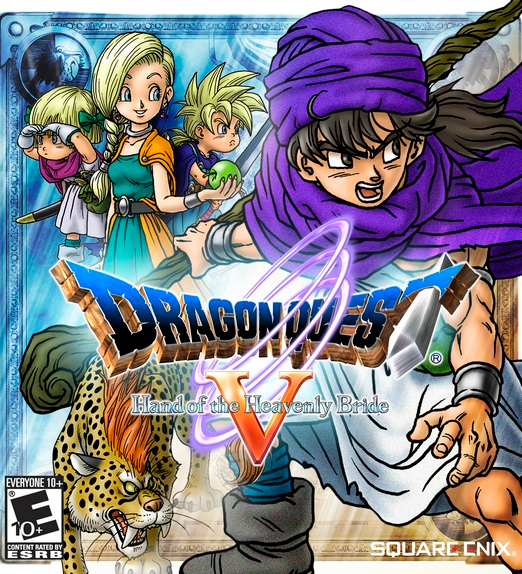
There seems to be a widely held belief that the "golden age" of the Japanese RPG coincided with the glory days of the Super Nintendo Entertainment System in the early 1990s. Many who hold this viewpoint will reel off the same handful of classic titles as evidence of this - Final Fantasies IV, V and VI; Chrono Trigger; Secret of Mana; Earthbound; Super Mario RPG; Breath of Fires I and II; the list should be familiar to anyone who's engaged in this conversation over the years. One game that doesn't get mentioned very often, though, is Dragon Quest V. That's perhaps understandable given the original Super Famicom version of the game never made it out of Japan, an unfortunate casualty of Enix's decision to withdraw from the western games market after the poor performance of Dragon Warrior IV. The game eventually made its way to the west by way of a DS remake in 2009, which was subsequently ported to mobile devices in 2015. But even with this retroactive availability taken into consideration, there don't seem to be many people going to bat for Dragon Quest V as an example of the genre's finest hour.
Ladies and gentlemen, permit me to step up to the plate.
At first glance, Dragon Quest V may not seem all that different from its predecessors. It's a Japanese RPG with an overworld to explore, towns to shop and rest in, and dungeons full of monsters that you encounter randomly and fight in strategic turn-based combat. Where Dragon Quest V surpasses its brethren is in its innovative approach to storytelling. Its story unfolds over the course of twenty years, following the protagonist from an inquisitive six-year-old boy in the care of his father, through adolescence and into adulthood. Along the way he suffers loss, falls in love, and raises children of his own. As a result, Dragon Quest V feels like a far more intimate adventure than other games in the series, with the stakes often feeling deeply personal to the protagonist (and by extension the player) as opposed to just world-threatening. This approach also allows for Dragon Quest V to subvert player expectations in some really interesting ways, most notably by not putting the protagonist at the centre of a "chosen one" narrative. The plot is further enhanced by some excellent storytelling through gameplay, using combat mechanics and equipped items to convey certain plot points in a way that would be impossible in any other medium and helping them hit all the harder. All this is to say nothing of the game's monster-taming mechanic, which was years ahead of its time and allows for an incredible amount of party customisation. Dragon Quest V is an innovative, subversive and emotionally resonant experience, and one that definitely deserves to be mentioned in the same breath as Final Fantasy VI, Chrono Trigger, and the rest of its early-90s SNES brethren.
Grand Theft Auto: San Andreas
Rockstar North / 2015 (2004) / PlayStation 4
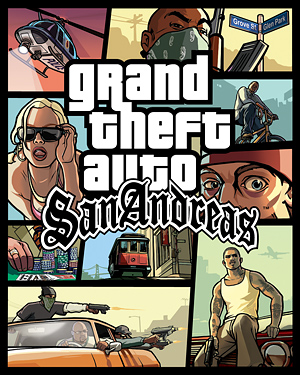
At a time when Rockstar Games seem to be getting nothing but bad publicity, it was comforting to return to one of their older titles and receive assurance that my belief they were once one of the industry's greatest names was not misplaced. This PS4 port of the PlayStation 2 classic, now delisted to make way for the controversial Definitive Edition remaster, took me all the way back to the late autumn of 2004 and bathed me in a wave of nostalgia I wasn't quite prepared for. At the same time, I was able to approach San Andreas with a more mature and critical eye, and I came away from it with a far greater appreciation of what it accomplishes on a technical level. From the staggering feat of presenting a huge, seamless open world comprising three distinctly different cities across an entire state, right down to minor gameplay improvements like the improved third-person shooting. There's the unparalleled sense of scope, with more of everything from vehicles and weapons to clothing options and collectibles, paired with an insane level attention to detail, right down to the radio having a different preset equaliser depending on the type of vehicle the player is driving. There's the near-prescient feel of some of its gameplay features, like the incorporation of RPG-like stats governing CJ's driving and shooting skills, or the weight and exercise mechanics that (to my knowledge) no other game has sought to replicate in the seventeen years since its release. There were genuinely moments when, outside of its visual presentation and dated control scheme, I could have been convinced I was playing a contemporary video game release, and not an uprezzed port of a PS2 game ripped from an old-fashioned DVD.
I've long considered San Andreas to be my least favourite of the PS2 trilogy of Grand Theft Auto games. GTA III has my undying respect for essentially birthing an entire genre with its 3D open world design and mission-oriented gameplay. Vice City has long been my favourite of the three thanks to its flawless conjuration of 80s atmosphere through its neon-drenched aesthetics and killer licensed soundtrack. San Andreas, on the other hand, has lived in my memory as a game that tried to do too much and suffered under the weight of its own scope and ambition. Having now replayed it for the first time in fifteen years, I feel comfortable saying I was wrong. San Andreas is the product of a talented development studio at the top of their game, wringing every last iota of processing power out of ageing hardware to produce one of the most feature-complete open world video games ever made. It is a game that is years, perhaps even decades ahead of its time in multiple respects. And it is, without a doubt, the best GTA game on PS2.
Vice City still has a better soundtrack, though.
Hyper Light Drifter
Heart Machine / 2016 / PlayStation 4
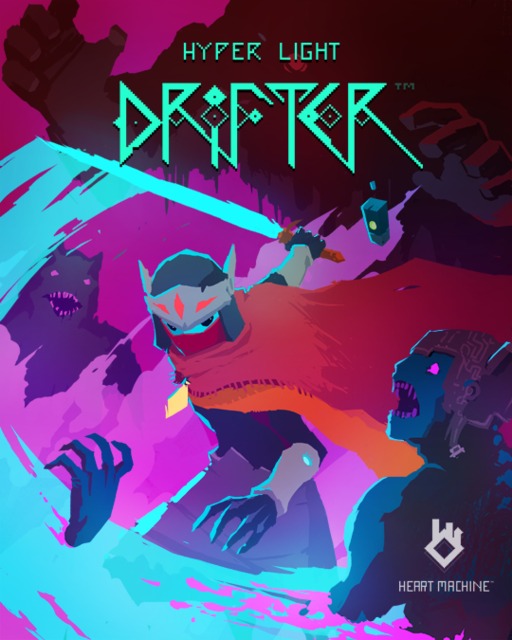
You only need to take a cursory glance back at the first paragraph at the top of this page to realise that 2021 was a year punctuated by significant losses for me. Consequently, I think I've contemplated my own mortality more in these last twelve months than at any other time in my life. It has, at times, been difficult to know how to muster the strength to carry on in the face of such profound absences. In those situations, more often than not, I have found myself thinking back to the time I spent playing Hyper Light Drifter. Thinking about how the eponymous Drifter, even in the face of the undefined illness that consumes him, presses on to the next challenge he must face. Thinking about how the possibility, the eventuality of death, much like the spectral jackal that lingers near the Drifter throughout his journey, is ever-present. Thinking about how it is not the end of our life, but what we do with the time leading up to it, that matters. To that end, I have endeavoured to celebrate the lives of those I lost this year. Most notably, I arranged for myself and several workmates to take part in a Race for Life in memory of our lost colleague. I'm not sure I would have had the fortitude to even suggest that, had it not been for the time I spent with Hyper Light Drifter.
I admired Hyper Light Drifter for a lot of reasons. I admired its stylish aesthetics and its commitment to telling its story wordlessly through its visual presentation and sound design. I admired the retro mentality it brought to its 2D action gameplay, often demanding nothing less than perfection from the player against its most challenging opponents. But more than anything else, I admired its ability to make me reflect on the time I spent with others that are no longer with me, and truly value that time and those experiences. It has reminded me that death is something that comes to all of us, but it needn't be what defines us. And it has helped me come to terms with the losses I have faced this year in a way that I'm not sure any other piece of media could have done. I am intensely grateful to Hyper Light Drifter, and by extension everyone working at Heart Machine, for helping me through this downer of a year.
Oddworld: Soulstorm
Oddworld Inhabitants / 2021 / PlayStation 4
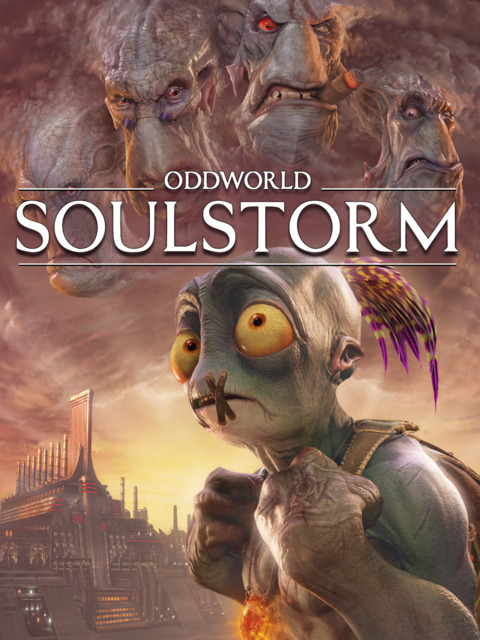
You might be forgiven for believing that I'm now obligated to fulfil an annual quota of at least one ground-up remake of a childhood favourite on these lists, with a game fitting that bill appearing in every one of my end-of-year round-ups since the Crash Bandicoot N. Sane Trilogy released in 2017. Oddworld: Soulstorm is this year's candidate, a complete reimagining of 1998's Oddworld: Abe's Exoddus. Lorne Lanning has made no secret about the fact that Exoddus wasn't the story he wanted to tell, with publisher pressure to provide a sequel to Abe's Oddysee in just under a year of development time forcing him to make compromises on his vision. By contrast, Soulstorm was in development for around seven years, and the additional time spent is more than apparent in the finished product. Far from being a slavishly faithful remake, Soulstorm uses Abe's Exoddus as a jumping-off point from which to bring Lanning's original vision to life, expanding the original story to include new locations, characters and plot developments that further flesh out Abe's efforts to save his people and cease production of the addictive Soulstorm brew.
The enhancements don't stop there, either. Alongside its expanded narrative, Soulstorm updates the Oddworld aesthetic to bring it in line with contemporary graphical standards. Characters that share a common race are no longer palette swaps of each other, but individuals with their own distinct features. The gameplay has also undergone some meaningful modern overhauls, maintaining its classic 2.5D perspective while adding some pretty cool crafting mechanics and a bevy of interconnected emergent gameplay systems that turn each scenario Abe faces into a sandbox-style puzzle to solve. All of these additions and enhancements serve to make Soulstorm the best-playing classic-style Oddworld game to date, and have me incredibly excited about what's coming next from Lanning and the rest of Oddworld Inhabitants.
Overcooked! 2
Team17 / 2018 / PlayStation 4
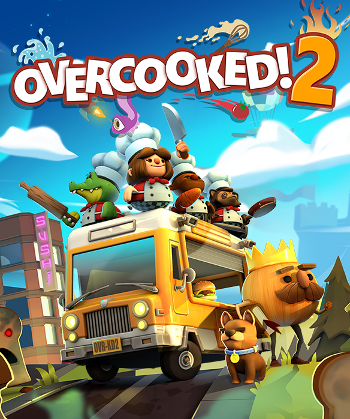
It's not very often that a co-op game makes one of these end-of-year lists. My game time is usually spent playing single-player campaigns, with competitive multiplayer reserved for when Super Smash Bros. or Mario Kart come out during friendly gatherings. I don't really play online multiplayer either, a stance that has only solidified as the industry moves more towards "live services" as the de-facto business model for games with online components. I may be more surprised than anyone, then, to find Overcooked! 2 taking a spot in this year's top ten. To understand why, we need to turn the clock back to the start of this year, when the UK was deep into its third Covid lockdown. My buddy Matt suggested that we find some way to stay in regular contact online while we were unable to meet in person. We started out with a couple of weekend sessions of Super Smash Bros. Ultimate and Rocket League, but quickly tired of the competitive aspect and started seeking out something more cooperative in nature. He'd been gifted the Overcooked! collection on PS4 for Christmas, and while the first game lacked online co-op play, the sequel was a prime candidate. I picked up my own copy of the game from the PlayStation Store, he subscribed to PlayStation Plus, and we tentatively stepped into the Onion Kingdom together.
What followed was nine months of some of the most fun I've ever had in a co-op game. Beginning in March, roughly every other weekend we would get on a WhatsApp voice call, boot up our PS4s and play Overcooked! 2 for an hour or two. First we made our way through the entire story campaign, chopping, frying and boiling our way across the game's levels leaving only a trail of dirty dishes (and occasionally flaming kitchens) in our wake. When we'd exhausted the content that came with the base game we jumped into its many DLC campaigns, each one providing new recipes to learn, new kitchens to navigate and new challenges to overcome. It was fun trying to direct each other on the fly, coming up with new strategies to tackle each kitchen that stumped us, and working out how best to maximise our efficiency in pursuit of those three-star ratings. Arguably just as important, though, were those moments between levels, when we were kicked back out onto the world map and given a moment's respite to chat about things outside the game - about our work, about our home lives, or even just about the various different limited edition flavours of Jaffa Cakes we'd seen on the shelves in our local supermarkets. Overcooked! 2 wasn't just a fun game, it was a medium for communication with one of my best friends when we weren't able to see each other in person. That is why it more than earns its spot on this list.
Primal
SCE Cambridge / 2016 (2003) / PlayStation 4
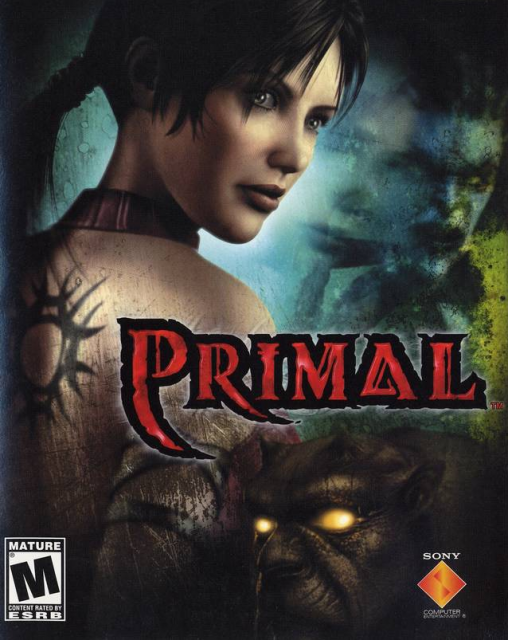
Primal ticks off another square on the "My End of Year List" bingo card, specifically the one referencing a game that was finally beaten after being in my backlog for way too long. I'd previously tried and failed to get into Primal on two separate occasions, both of which I've actually documented on this blog in past entries - my first attempt was stalled by an unreadable disc, and my second was hampered by the game's inability to get interesting within the first hour. Even so, I couldn't quite bring myself to sever my ties with the game completely, and after picking up the PS2 Classic version digitally on PS4, I finally saw Jen and Scree's adventure through to its conclusion at the end of the summer. On reflection, I think I judged it a little too harshly a decade ago. Primal definitely isn't perfect, but it still has a lot to offer to those willing to persevere through its slow opening.
Critical to Primal's success, in my opinion, is its assured sense of place. Each of the four demonic realms that Jen and Scree must pass through in their quest to restore balance to the forces of order and chaos feels distinct and believable, in a way that evokes the likes of Legacy of Kain's Nosgoth. This makes each realm interesting to explore and compels the player to learn more about its inhabitants and their current predicament. It was this aspect of Primal, along with the immense likeability of the dual protagonists, that convinced me to see it through to the end. Jen's different demonic transformations, while suitably distinct from one another in terms of gameplay, feel like they would benefit from some kind of contemporary skill tree system to flesh them out a little more. I also lament the fact that the laboured animations and unresponsive controls make the exploration and combat feel disappointingly sluggish, and that's likely to be a deal-breaker for so many players that I can't in good conscience recommend Primal to just anybody. For those looking for an interesting story with charming characters and captivating worldbuilding, though, I feel that the frustrations are worth putting up with. I'm certainly glad I finally made it through this one.
Super Metroid
Nintendo / 2019 (1994) / Switch
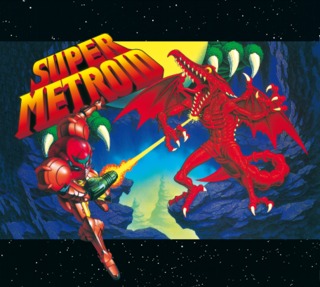
At the start of this year, I don't think I would have ever entertained playing a Metroid game. I grew up with a Mega Drive and later a PlayStation, so I was a latecomer to a lot of Nintendo franchises - my first Zelda was Wind Waker on the GameCube, and I didn't play a 3D Mario game until I downloaded the Wii Virtual Console version of Super Mario 64 back in 2015. Metroid, as one of Nintendo's more "fringe" IPs, simply never appeared on my radar. 2021 changed that, big time. Seeing the announcement trailer for Metroid Dread at E3 ignited a curiosity within me that only seemed to grow with the collective hype for Samus' fifth canonical 2D adventure. Unfortunately, my options for getting acquainted with the besuited bounty hunter were severely limited by my current console options. General consensus was to steer clear of the NES original and its Game Boy sequel, while no GBA meant I couldn't check out the acclaimed Zero Mission or Fusion, and the prohibitive pricing deterred me from starting with Samus Returns on the 3DS. That left me with one option - the most accessible 2D Metroid game, and (thankfully) supposedly the best.
Justifying my signing up to Nintendo Switch Online beyond access to Pokémon HOME and the occasional online bout of Super Smash Bros. Ultimate, Super Metroid became the first game I've played via the subscription service's library of NES and SNES classics. And boy, did I play the shit out of it. I made my way through Super Metroid in just three sittings across two days, ensnared by its item-based progression and driven to explore every reachable inch of the planet Zebes. Each newly discovered power-up doubled as a key unlocking even more of the map, encouraging me to return to previously explored areas in search of new pathways and secrets. Gradually, as the map opened up, parts of the alien terrain started to feel more familiar, almost homely, with each subsequent revisit. The only thing stopping me from jumping straight back in when the credits rolled was the fact that using the game's final save room soft-locked me into the end sequence and made it impossible to keep exploring. Super Metroid is perfectly paced, exquisitely balanced, and it's easy to see why it's considered one of the greatest games of all time. I'll definitely be returning to the series in 2022, just as soon as I can afford to pick up a copy of Dread for myself...
Uncharted 4: A Thief's End
Naughty Dog / 2016 / PlayStation 4
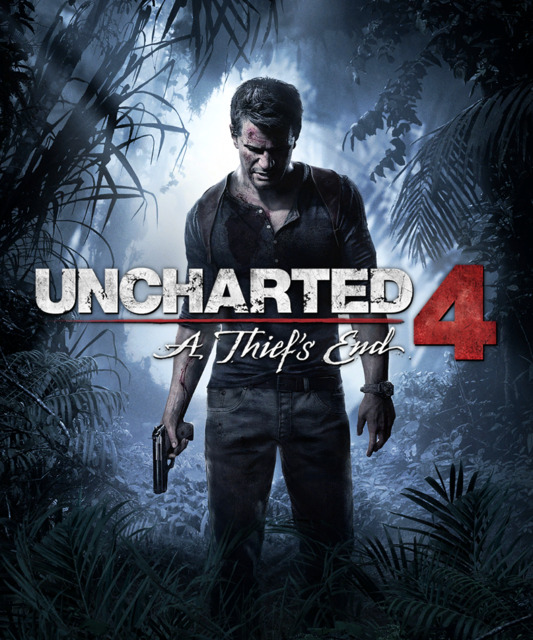
I fell in love with Uncharted 4 a lot earlier than I suspect most other players did. I was in the game's pocket by the fourth chapter, when Nathan Drake picks up a toy pistol and lets the player fire foam bullets at various targets around his attic. In that moment I realised I had more in common with Nate than I ever thought possible. Uncharted 4 portrays its protagonist as a guy stuck in a rut, caught working a mundane job and navigating the pitfalls of ordinary civilian life, all the while longing for the excitement of a life left behind. As a guy in his thirties with a mortgage to pay, a wedding to plan, and progressively less time to indulge in his passions, I found this sequence so relatable it almost hurt to play. It was this unspoken understanding between myself as the player, and Nate as the avatar, that ensured I was firmly on board for the rest of the game's fifteen hour run-time.
It would be easy for me to dismiss Uncharted 4 as simply being "more Uncharted", especially playing it less than twelve months after revisiting the Nathan Drake Collection and playing the first three games back-to-back. To do that wouldn't even be wrong, per se - Uncharted 4 is most definitely another one of those games where Nathan Drake jumps the jumps and shoots the bad guys and looks and sounds cool doing it. To speak about it in such reductive terms is doing it a massive disservice, though. Uncharted 4 is more fittingly described as "better Uncharted", taking the tried-and-tested template of Uncharteds 2 and 3 and building on it with the best story, the best characters, the best gameplay, and the best set-pieces in the entire series.
I do kinda wish I hadn't played it on Crushing for my first go around, though. God damn, Chapter 20 almost broke me.
The Witcher 2: Assassins of Kings Enhanced Edition
CD Projekt Red / 2012 (2011) / PC

I will remember The Witcher 2 as a reminder why I don't often play games on PC. Getting it running in an acceptable, playable state proved to be quite the headache, taking almost as long as actually playing the first act of the game itself. I'll concede my laptop is hardly a gaming powerhouse, but its specifications suggested I should have been able to run the game on its lowest default settings at a fairly consistent framerate. Unfortunately that proved not to be the case, with frames dropping into the single digits even with every possible graphical bell and whistle turned off. This set in motion a series of diagnostic tests, YouTube tutorials, downloading a separate program to modify the .ini file with a series of trial-and-error adjustments, and finally installing a mod to increase the size of the in-game text after dropping the resolution to a size that rendered it illegible. This process took almost a dozen hours if the 'Hours Played' count in Steam is an accurate indication, and the end result was an experience that remained pretty consistently around 25-30fps, at the cost of exceedingly blurry textures, a laughably short draw distance on all foliage, and hard-to-parse text in the menu screens.
The fact that even after all these headaches, and even in such a compromised state, I still found The Witcher 2 to be an unforgettable experience, is hopefully a sufficient testament to its quality. Picking up shortly after the end of the first game, it chronicles Geralt's search for the murderer of the Temerian king Foltest in an effort to both clear his name and regain his lost memories. Structurally it feels similar to the first game, with each of its numbered acts taking place in a different centralised "hub" location populated by quest-givers and shopkeepers, and surrounded by monster-infested wilderness. But where questing in the original Witcher could at times feel bloated and aimless, The Witcher 2 instead feels focused and polished. Nowhere is this more evident than in its story, which once again places Geralt between the entitled, power-drunk humans and the marginalised, militant Scoia'tael and forces him to take a side. This time the choice feels significantly more meaningful than the first adventure's somewhat incidental morality checks, with Geralt's allegiances determining which of the game's two very different second acts the player gets to experience (I sided with Iorveth and the Scoia'tael for my playthrough). An overhauled combat system rounds out the package, eschewing the first game's rhythmic click-based combo system in favour of a more action-oriented approach. While I ultimately think I prefer the first game by the narrowest of margins, there is no denying that The Witcher 2 is a fantastic role-playing game, and I can't wait to check out the third game in the series at some point in the future - something I'll thankfully be able to do on PS4!
---
There you have it, folks. Those are the ten games which, above all others, defined this year for me. It's been fun to look back on all the positive experiences I've had with video games over the past twelve months, and it's made me just a little bit more excited to think about what 2022 may hold in store in both the digital world and the real world. I'd be really interested to hear what games other folks have played in 2021, and what games you're looking forward to playing in the new year, so please drop a comment underneath this wall of text and I'll be sure to read and reply to it as soon as I can. As for me, I'm currently wrapping up a playthrough of Final Fantasy XIII-2, but I don't anticipate finishing that until we're firmly into 2022. Beyond that, I have some tentative plans for what I'll be playing in the new year, but I think I'll save those for another blog a little further on down the line. Until next time, thanks very much for reading. Take care, stay safe, and I'll see you around.
Daniel
